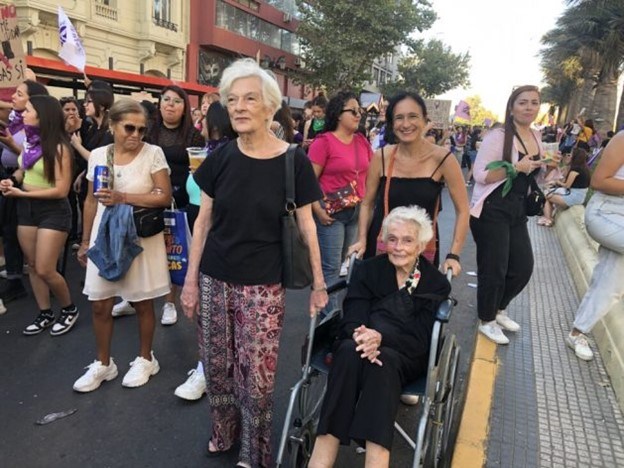
HAVANA TIMES – In Chile, as in the rest of Latin America, the task of caring for people with disabilities, the elderly and children falls to women who, as a result, do not have access to paid jobs or time for themselves.
Unpaid domestic and care work is crucial to the economies of the region, accounting for around 20 percent of gross domestic product (GDP).
Measurements by the Economic Commission for Latin America and the Caribbean (ECLAC) found that in 16 Latin American countries, women spend between 22.1 and 42.8 hours per week on unpaid domestic and care work. Men only spend between 6.7 and 19.8 hours.
Ana Güezmes, director of ECLAC’s Division for Gender Affairs, told IPS that “in most countries women work longer total hours, but with a lower proportion of paid hours.”
“This work, which is fundamental for sustaining life and social well-being, is disproportionately assigned to women. This situation impacts women’s autonomy, economic opportunities, labor and political participation and their access to leisure activities and rest,” Güezmes said at ECLAC headquarters in Santiago.
The situation is far from changing as it is replicated in young women who devote up to 20 percent of their time to unpaid work.

Women left on their own as caregivers
Paloma Olivares, 43, chairs the Yo Cuido Association in Santiago, Chile, which brings together 120 members, only two of them men.
“Women caregivers are denied the right to participate on equal terms in society because we are forced to choose between exercising our rights or doing caregiving work. And we cannot choose because it is a job we do for a loved one, for a family member,” she told IPS.
“We are left in a position of inequality, of absolute vulnerability because you have to devote your life to supporting someone else at the expense of your personal life,” she said.
Olivares stopped working to care for Pascale, her granddaughter, who was born with cerebral palsy and hydrocephalus.
Three days after her birth, a bacterium became lodged in her central nervous system. She was hospitalized for almost a year and became severely dependent.
At the time, she was given a seven percent chance of survival. Today she is eight years old, goes to school and lives an almost normal life thanks to the work of her caregivers.
She is now cared for by her mother Valentina, who had her at the age of 15. Paloma was able to return to paid work, but her daughter abandoned her studies to take care of Pascale.
“When you start being a caregiver, friendships end, because no one can keep up. Even the family drifts away. That’s why most caregiving families are single-parent, the woman


